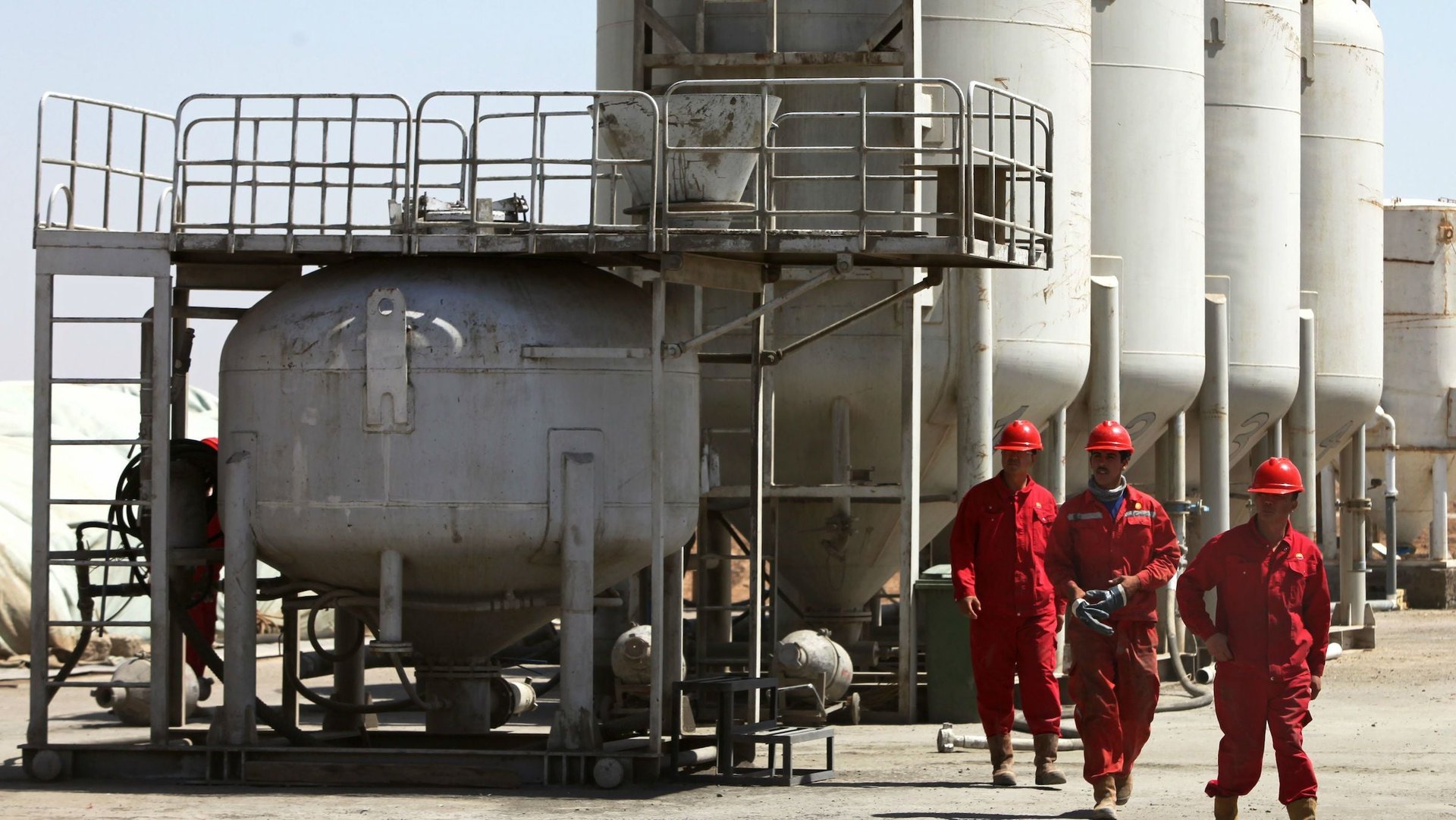China has a lot to lose in Iraq—and not just the thousands of oil workers it has there
More than 1,000 stranded Chinese workers are being evacuated from war-torn northern Iraq today via helicopters and buses, according to Chinese state media, as a violent Sunni insurgency threatens to tear the country apart. The emergency operation highlights China’s heavy investment in Iraq, as well as the drawbacks of China’s foreign investment strategy that focuses on less-explored and often unstable regions.


More than 1,000 stranded Chinese workers are being evacuated from war-torn northern Iraq today via helicopters and buses, according to Chinese state media, as a violent Sunni insurgency threatens to tear the country apart. The emergency operation highlights China’s heavy investment in Iraq, as well as the drawbacks of China’s foreign investment strategy that focuses on less-explored and often unstable regions.
China arguably benefited the most from the US invasion of Iraq and the bloody insurgency and civil war that followed. Beijing is Baghdad’s biggest customer for oil exports, in part because Chinese firms were willing to accept lower profit margins, play by the central government’s rules, and tolerate the security risks created by the country’s political instability. Now, with Iraq on the brink and militants threatening an invasion of Baghdad, China may have the most to lose.
Chinese state-owned firms have invested a total of $10 billion in the country. The state-owned energy giant, China National Petroleum Corporation, is the single largest foreign investor in Iraq’s oil sector. Iraq is China’s fifth largest oil supplier. Between 10,000 and 15, 000 workers, in addition to the ones being rescued today, are still in the country.
This isn’t the first time China—whose state-owned firms are currently operating in unstable countries ranging from South Sudan and the Democratic Republic of the Congo to Zimbabwe—has run into trouble with its overseas investments. In 2011, China had to evacuate over 35,000 citizens from Libya when protests broke out.